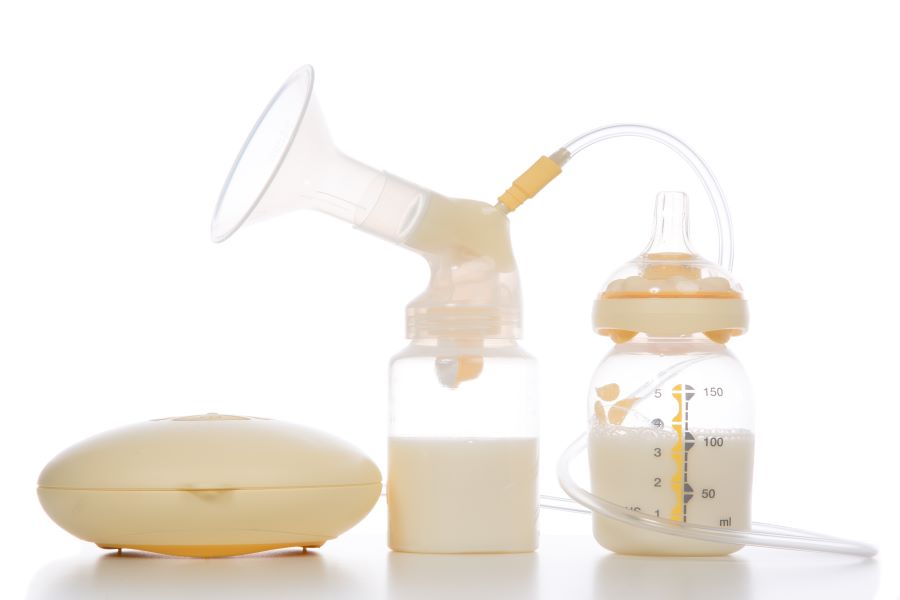9 Proven Ways to Increase Milk Supply


While many women think they have low milk supplies, especially in the first few weeks of breastfeeding, the real incidence of this problem is pretty rare. However, for the woman who has been diagnosed with true low milk supply, it can be scary to feel like you are unable to provide the food your baby needs. Here is a list of evidence-based strategies you can use to increase milk supply.
Take a “nursing vacation.”
As silly as this sounds, the goal here is to focus on nothing but increasing skin-to-skin time and feeding your baby. Let others worry about making the meals and cleaning the house – your job during this time is to spend time with your baby. Many moms will do this on a weekend when their partner is home and able to help. They then spend most of their days resting with their baby, providing skin-to-skin contact and allowing the baby unlimited access to the breast. This contact can encourage more frequent feedings, and the baby\’s closeness can help boost her supply. The bright side? Mom gets a much-needed break to let go of the other things that may be stressing her out or serving as distractions.
Increase the number of feedings.
The breast milk mantra is pretty simple: the more milk that is removed, the more milk that is then made. Plainly put, if you allow your baby to feed more, your body will respond by kicking into high gear and producing more milk. If you are trying to get your baby on a schedule or limiting feedings at night with the hope of encouraging more sleep, it’s time to let these plans go. If your baby seems hungry, feed him! Even if he just ate an hour before.
Pump or hand express milk.
The same idea about increasing the amount of milk removed applies here, and using a pump or hand expression to help can be useful for some moms. Pumping after every feed can be a lot of work though, so check in with your lactation consultant before doing this to make sure you really need to. If you get the go ahead, you’ll want to specify whether or not you need to give what you pumped to your baby (such as if your baby is having weight gain issues) or if you can store it away in the freezer. The reason this is important to know is that giving a bottle of pumped milk may keep your baby from nursing as much, since he or she may be full from the bottle. While this is sometimes recommended, it’s important to clarify before you start supplementing, even if it is with your own milk. If you do need to pump to increase your supply, make sure you have a quality double-electric pump and know how to use it correctly.
Breast massage before feeding and pumping.
The goal here is not hand expression but rather to massage the breasts prior to feeding. This can increase the amount of milk that is then removed during nursing or pumping, which can then signal to your body that it should produce more milk. Different techniques for breast massage have been described, but the “massage-stroke-shake” is one that can be used prior to nursing or during pumping, as described here.
Consider galactagogues.
These are herbs or medications that are believed to increase a woman’s milk supply. While some women swear by them, we don’t have a ton of data about whether they really work or not. However, this is probably because we lack good studies. Galactagogues are not all created equal and are not free of side effects, so check in with your lactation consultant or doctor to figure out if you should take one. These professionals can help you know what to watch out for.
Cut out unnecessary supplements, bottles, and pacifiers.
Anything that your baby can suck on that replaces the breast can get in the way of boosting and maintaining your milk supply. And if you’ve been giving supplements like formula, check in with your pediatrician to determine if this is really necessary. If not, stopping them can ensure that your baby will feed more at the breast, and in time, your production will ramp up to meet your baby\’s needs.
Take care of yourself and relax.
Of course this is easier said than done. However, it\’s important. Worrying about whether or not you are making enough milk for your baby can take a huge mental toll on a mother. It might leave you so upset that it interferes with your milk let-down. Realize that any breast milk is better than none and that feeding your baby is only one part of mothering your child. Be sure not to get lost in this process, and set aside time for you — it is not selfish and can give you a boost during those stressful moments.
Treat any medical conditions.
There are certain medical conditions that can cause a woman to have a low milk supply. These might include undiagnosed thyroid disorders, diabetes, and polycystic ovarian syndrome, to name a few. If you haven’t been asked about these conditions in the process of trying to understand why you have low milk-supply, ask your lactation consultant or doctor to look into this further.
Stop hormonal medications.
Some women notice a drop in their supply after starting certain types of birth control. If this might be you, stopping these medications may help your supply rebound quite nicely. However, have another birth control plan in place before you have sex, unless you are ready to get pregnant again!
Sources:
- Riordan and K
- Wambach
- Breastfeeding and Human Lactation, 4th edition.
Powered by Bundoo®










































